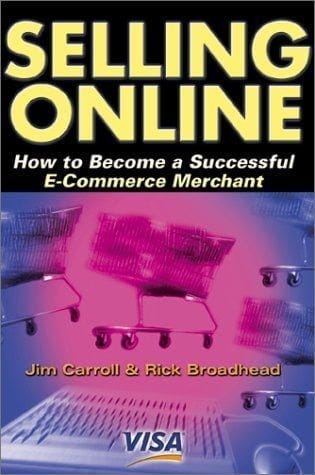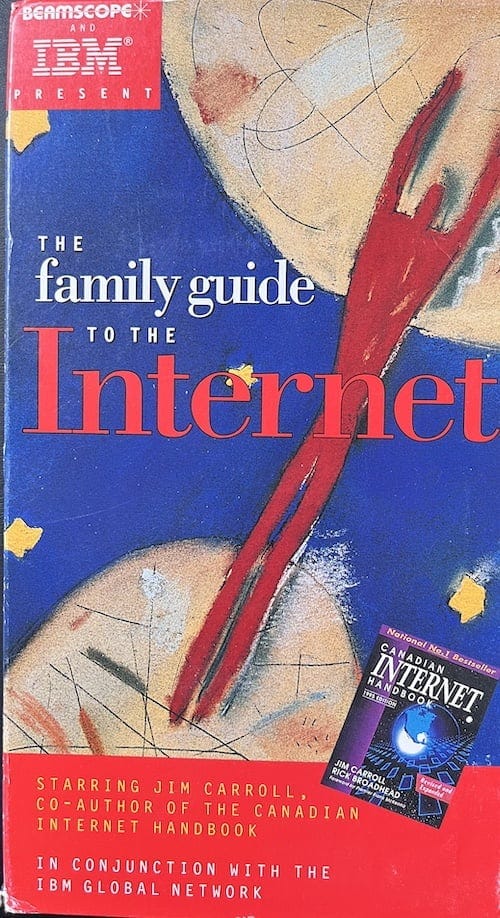Your career is built on. foundation of trust; your reputation is your most critical asset; your integrity is your most important calling card; the professionalism you bring to your work is your most important reference.
And you will know that any time you have an opportunity in front of you - whether pursuing a new job, chasing a consulting contract, or exploring some new opportunity, due diligence is a key part of the process. Whoever is interested in you will dig into your LinkedIn profile, Twitter feed, and other information-rich sources; they will peel back the legacy of your previous work; they might reach out to your references. They will examine your experience, and take a look at who has been willing to place their trust in you.
I've always got some useful information to share with these prospective partners when they approach me. Over the years, I've had many global organizations engage me for custom video, audio, and written content; work that goes far beyond my time with them in preparation for a keynote and while on stage or in a Board of Directors meeting. From custom video production to customized articles, and podcasts to books, I've worked hard to earn the trust of major corporate partners worldwide with my ability to share my insight beyond the stage.
The logos of some of the companies that brought me in for these projects are found in today's image - and I can assure you it takes a lot for a corporate organization to trust its logo and reputation to a new partner. There is always an army of lawyers involved with wonderfully complex contracts, a full division of marketing executives eager to place their stamp on whatever campaign is underway, and a full battalion of public relations executives who stand on guard for the sanctity of the corporate name.
I've detailed many of these projects over on a page of Custom Corporate Projects. It's an interesting assortment of companies, and I'm still working quite a few more into the list. This has come about as the nature of the 'business of insight' continues to shift, and I get approached by a greater number of organizations for projects that 'go beyond a keynote.' I'm fortunate that I can share with the folks who send me these inquiries a long list of reputable partners who placed their trust in me for a project - and who saw powerful results. I've worked hard throughout my career to build a legacy of trust, a reputation of integrity, and a foundation of quality. It's one of the most important things that you can do.
Here's just a bit of that work.
Notably, PG&E engaged me for a custom video on "The Future of Energy." The CEO of this massive US west coast energy utility needed to get across to his team the fact that the industry was being disrupted by the emergence of micro-grids, the acceleration of battery technology and renewables, and local community energy grids. He found me; and I worked with a professional film crew throughout San Francisco to film the video “Could The Energy Industry Be MP3’d?”, a fast-moving, hard-hitting video that brought some disruptive ‘shock and awe’ to his team – and to the industry.
Deloitte South Africa was eager to bring me to Capetown for an event, but I was already booked. The result was that they arranged for a professional film production they could use to open their annual ‘best in practice’ HR awards show with a hard-hitting message of world-class excellence. The result was the highly customized, fast-action video, “What Do World Class Innovators Do That Others Don’t Do?” With the ground filming around Ontario, Canada done by a local production company, Riverbank Pictures, the final product was edited and produced to perfection by South Africa’s FogHound Studios, providing a world-class global production.
VISA? Many years before e-commerce became a staple of our lives, accelerated by the lockdowns of the global pandemic, my original book writing partner Rick Broadhead and I wrote a seminal work about the topic in our book, “Selling Online: How to Become a Successful E-Commerce Merchant.”

Released in 1999, the book caught the attention of a senior VP at VISA USA, who commissioned a custom print of 60,000 copies, with some custom content provided by VISA. The book was widely publicized by VISA in corporate mailings, PR campaigns, and advertisements, and was provided to leading merchants as a pathway for them to follow to begin understanding and exploring this complex new world of online commerce.'
Oh, and then there are always a few projects you look back with a bit of thinking - 'how did I do that?' That brings me o the IBM video, The Family Guide to the Internet.

Every career involves a momentary embarrassment, a minor moment in time that you would like to recall! This video is that moment - filmed in 1994, in the early days of the Internet, the video was aimed at the consumer marketplace. IBM distributed tens of thousands of copies on VHS; you can still find it in a few local libraries. It was actually sold for a time in video stores and other locations; you could actually find it in Costco!
It was pretty intense, filmed, and produced with a full audio and video film production team that included upwards of 12 people on location. It also took one heck of a lot of work - two days of filming on location, stretching well into 14-hour days to get the 'film into the can' - quite the experience! But I can also assure you that it takes a lot for one of the world’s most prestigious technology companies to get involved in any type of cooperative project, and for them to place their logo on a VHS tape nonetheless is indicative of the trust they placed in the ‘star’ of this production, Jim Carroll!
I wrote much of the script and storyline - and with that in mind, here's the opening scene.
Keep in mind though - it's 1994, and I'm pretty much predicting Skype, Facetime, and Zoom, albeit from an interesting location!
Whatever the case may be, a long list of projects always provides a useful foundation of trust for chasing the next one! Because "trust is that thing you earn through consistent action."
Futurist Jim Carroll began writing a book shortly after the Enron scandal titled Integrity: How to Get it, How to Keep It. He abandoned the project to double down on the demand for his insight as a futurist but still holds the ideals he worked into the project close to his heart.

